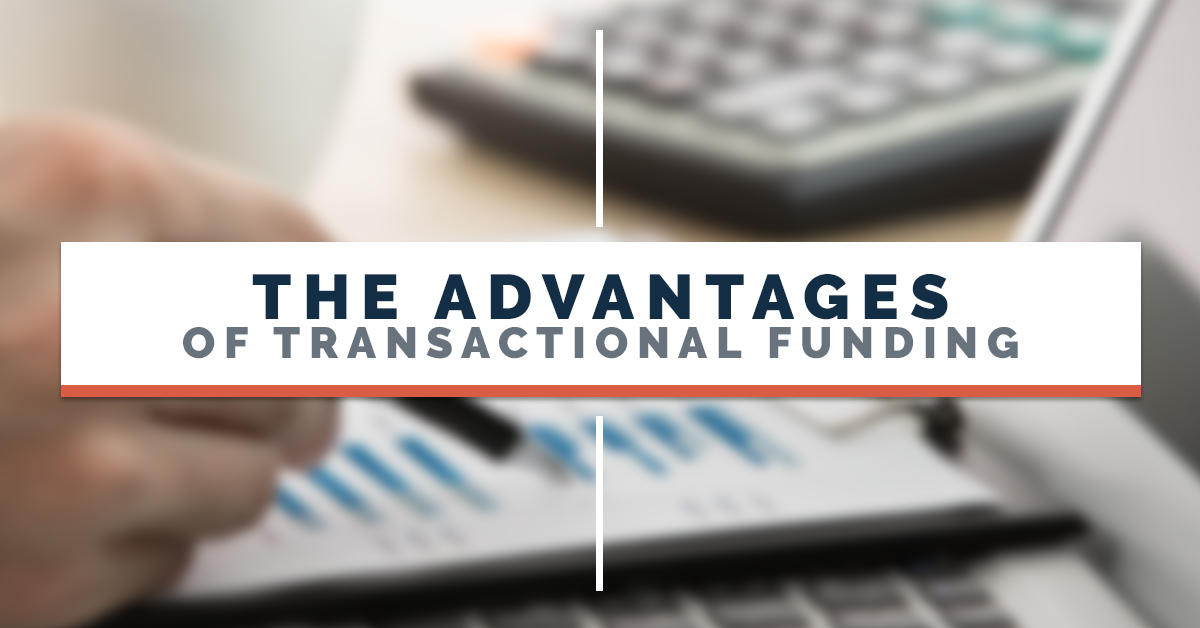The Advantages of Transactional Funding
As we outlined in our initial blog post on the topic of transactional funding, this real estate financing strategy involves short-term, hard-money lending. A wholesaler can purchase a property without using any of their individual funds, assuming there is an end-buyer lined up to purchase the property within two-to-five days.
Outline of Transactional Funding
- An individual (buyer, investor, flipper) writes a contract to purchase a property from a seller.
- The individual signs a contract with a new end-buyer to purchase the property on the same day that the individual bought it from the initial seller.
- The individual uses transactional funding for the deal to buy the property from the original seller and sell it to the new buyer.
Transactional funding has become more regulated since 2008. Before the financial crisis and housing market collapse, investors could finance homes by doing a “double closing” and use the buyer’s end funds for the initial transaction. As financial regulations tightened, however, this type of deal ended. Now, an investor must secure real estate financing before the property can be re-sold.
When done correctly, transactional funding can be incredibly lucrative for the wholesaler.
Laura Alamery, a Top Rated National® Real Estate Mentor, outlines the distinct benefits of transactional funding.
For more real estate financing and investment strategies, sign up for a free webinar or attend a live event near you!\
**THIS ARTICLE IS FOR REFERENCE ONLY. WE PERSONALLY DO NOT OFFER TRANSACTIONAL FUNDING OR EXTENDED TRANSACTIONAL FUNDING.**
Advantages of Transactional Funding
As you learn more about transactional funding and consider it as an option for your real estate playbook, consider the advantages of this type of financing.
1. You don’t need to qualify for a loan
Unlike other types of short-term real estate financing, such as a commercial loan or hard-money mortgage loan, there is no credit income verification for transactional fundings.
This means that you could have potentially filed for bankruptcy or have a foreclosure on your record, and you still can finance this type of deal. For investors who have had a few setbacks and want to make their way back into the world of real estate, a poor credit score won’t be a barrier-to-entry.
Additionally, you will not have to provide verification of your job, bank account, or any other aspect of your financial history. You do not even need an appraisal of the property.
The only qualifications are that you have a qualified end-buyer before you initiate the deal.
2. Quicker Closings
Speed is built into the foundation of transactional funding — that’s why transactional funding is commonly referred to as “flash” funding. Most property wholesalers only give you two weeks at most to complete the deal, so you have no choice but to proceed quickly to the closing table.
3. Limited Risk
Aside from the property that you are wholesaling, you have zero personal collateral attached to the investment. Unlike a home mortgage line, that might be tied up with other assets, this type of real estate financing is incredibly straightforward with no strings attached. So long as you have a willing seller and buyer, you should be able to proceed with no liability. The only collateral on the line is the property you are flipping.
4. Funding is Typically 100% of the Purchase Price
When you engage in this type of real estate financing, you practically guarantee 100-percent financing of your purchase price and closing costs. As such, transactional financing really lives up to its “no money down” character.
5. Lower closing fees
Compared to hard-money lending, transactional funding has lower associated fees. These other types of lending scenarios usually have more hidden and additional fees, ultimately digging into your profit margin. Additionally, with transactional funding, fees are taken out of the proceeds at closing, so you know exactly what you’re walking away with at the end of the deal.
Real Estate Financing Coach
As with any real estate investing venture, you want to make sure you are setting yourself up for low risk and high profit. Whether this is your first real estate transaction or you consider yourself a wholesale professional, consulting with a real estate mentor can greatly improve your return-on-investment and risk mitigation.
Contact Laura Alamery, a Top Rated National® real estate mentor, today for real estate coaching and free webinars.
**THIS ARTICLE IS FOR REFERENCE ONLY. WE PERSONALLY DO NOT OFFER TRANSACTIONAL FUNDING OR EXTENDED TRANSACTIONAL FUNDING.**
 Subscribe to our podcast
Subscribe to our podcast 


